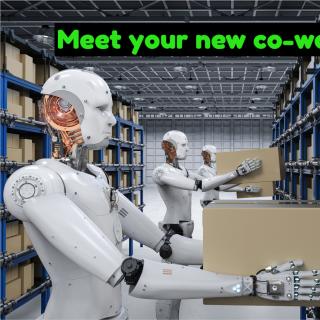Advertisement
The monumental battle over remote work in Columbus and elsewhere is heating up this summer as more traditionalist business leaders are demanding that their employees come to the office much or all of the time. Google maps workers, asked to come back to the office full-time recently, fought back with a petition and threats of a strike, and won a reprieve of 90 days. Elon Musk demanded that all Tesla staff come to the office full-time, resulting in Tesla staff getting recruited by other companies.
Yet what these traditionalist executives are failing to realize is that the drama, stress, and tensions caused by their demands won’t matter. Remote work will win this fall.
That’s because of the much more infectious BA.4 and BA.5 COVID variants, which the Biden administration predicts will lead to a major surge with 100 million infections in the fall. During both the Delta surge and the Omicron surge, traditionalist companies that tried to force their employees back to the office, and experienced extensive drama and stress over this coercive approach, had to roll back their plans, with all that effort wasted. Besides, the yo-yoing of going back and forth from home to the office and back home seriously undermined productivity, harmed engagement and morale, and impaired retention and recruitment.
So why do these traditionalist leaders pursue this doomed effort to push their staff into the office this summer? The key lies in what makes these executives feel successful and feeds their identity as leaders. In fact, one leader admitted as much in an op-ed piece, saying that “There’s a deeply personal reason why I want to go back to the office. It’s selfish, but I don’t care. I feel like I lost a piece of my identity in the pandemic.”
By honestly saying the quiet part out loud, this op-ed reveals how other leaders use false claims about remote work undermining productivity, innovation, and social capital to try to cover up their true concerns. This personal, selfish orientation speaks to a mental blindspot called the egocentric bias, an orientation toward prioritizing one’s own perspective and worldview over others.
Following their personal and selfish predisposition will hurt the bottom lines for their companies. What works much better is a hybrid-first, team-led model: a flexible approach where individual team leads consult with their team members to decide what works best for them.
That goes for large companies, such as Applied Materials, a Fortune 200 high-tech manufacturer. It adopted an “Excellence from Anywhere” modality that focuses on deliverables rather than where someone works. That also goes for middle-size organizations, including the Information Sciences Institute, a 400-staff data science and machine learning research center at the University of Southern California. ISI used this approach to gain leadership in hybrid and remote work.
Team members at Applied and ISI come to the office when they want to socialize or need to collaborate more intensely, since for most people, intense collaboration works best in-person. Otherwise, team members stay at home, since workers are substantially more productive working remotely. And as COVID cases increase in their area, the teams flexibly adapt their approach to collaborate and socialize fully remotely.
This team-led, hybrid-first approach provides the best of all worlds. It fits the desires of employees, whose biggest non-salary demand is flexibility. It also maximizes profits for companies, since it boosts retention, recruitment, collaboration, innovation, and productivity. And finally, it addresses the risks associated with COVID variants and other emergencies. The only obstacle is the personal, selfish orientation of traditionalist leaders, who need to recognize the danger they are posing to the success of their companies if they pursue their backward-looking coercive efforts to get their staff to return to the office.
---
Dr. Gleb Tsipursky helps tech and insurance executives seize competitive advantage in hybrid work by driving employee retention, collaboration, and innovation through cognitive science as the CEO of the future-proofing consultancy Disaster Avoidance Experts, and authored the best-seller Leading Hybrid and Remote Teams: A Manual on Benchmarking to Best Practices for Competitive Advantage.



